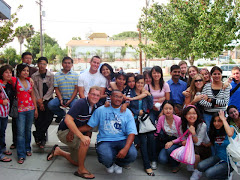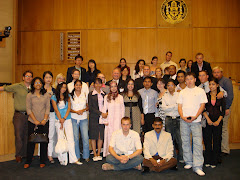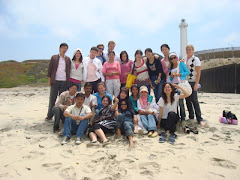 Since last November, the rising percentage of China’s CPI (consumer price index) reached 1.9%. It was the highest rising percentage in the recent 20 months. In 2006’s December, the CPI rising percentage was 2.8%, almost reached the inflation line of 3%. With a couple of measurements, CPI seemed to be stable for the first six months in 2007. However, since this June, the rising rate of CPI speeded up again and reached 4.4% in June and 5.6% in July, the highest in the recent 10 years. The actual rising rate of China’s CPI, most of the scholars believe, is much higher than the reported data from government. Because the counting of China’s CPI only includes food, clothing, medicines, transportation and communication, entertainment, service, living fees(like electricity and water), these fees take up only very little of Chinese daily consumptions. Currently, most of Chinese citizens’ money goes to real estate and the rising of the price of house is out of imagination these two or three years (price of the houses and flat, in some part of Shanghai, is higher than the price of Tokyo, one of the most expensive places in the world), so if the counting of China’s CPI include personal housing consuming, the inflation rate of China will be much higher. But no matter what kind of CPI counting system we are using, inflation is happening China, this is without any doubt. The reasons for inflation, may be the huge amount of China’s foreign exchange reserve, may be the expectation from outside of appreciation of RMB (Chinese currency) against US dollar and may include the excessive liquidity of RMB. I will not discuss the reasons in this article but what citizens choose to do in the inflation.
Since last November, the rising percentage of China’s CPI (consumer price index) reached 1.9%. It was the highest rising percentage in the recent 20 months. In 2006’s December, the CPI rising percentage was 2.8%, almost reached the inflation line of 3%. With a couple of measurements, CPI seemed to be stable for the first six months in 2007. However, since this June, the rising rate of CPI speeded up again and reached 4.4% in June and 5.6% in July, the highest in the recent 10 years. The actual rising rate of China’s CPI, most of the scholars believe, is much higher than the reported data from government. Because the counting of China’s CPI only includes food, clothing, medicines, transportation and communication, entertainment, service, living fees(like electricity and water), these fees take up only very little of Chinese daily consumptions. Currently, most of Chinese citizens’ money goes to real estate and the rising of the price of house is out of imagination these two or three years (price of the houses and flat, in some part of Shanghai, is higher than the price of Tokyo, one of the most expensive places in the world), so if the counting of China’s CPI include personal housing consuming, the inflation rate of China will be much higher. But no matter what kind of CPI counting system we are using, inflation is happening China, this is without any doubt. The reasons for inflation, may be the huge amount of China’s foreign exchange reserve, may be the expectation from outside of appreciation of RMB (Chinese currency) against US dollar and may include the excessive liquidity of RMB. I will not discuss the reasons in this article but what citizens choose to do in the inflation.In China’s history of inflation, people used to buy and store lot of “daily” things. Because before 1990s’, Angle modulus in China was very high, most of the money was spent on food, food related facilities and basic life necessities. Take the inflation in 1988 as an example, people withdrew their money from the bank and rushed to the shops and bought everything they could buy. Rich men at that time, bought televisions, fridges, washing machines, poor people bought rice, salt, matches. A colleague of my mom bought 10 rice-cookers at that time and she is still using them now. In a word, Chinese people used to buy things, esp. things for daily usage, as their way of protecting themselves from inflation. However, the Angle modulus reduced to less than 50% in 2006, which means that these daily used things are not very important and cannot take up a big percentage in a family’s spending, so no one will go to shops and buy 10 cookers these days as a way of keep their money valuable. What can Chinese do in order to protect ourselves from inflation?
How to prevent our money from depriciation? One thing is for sure, keep money in the bank is no longer a good idea, although People’s Bank (central bank of China) announced three times the interest’s increase in just 2 months, the interest is still below the increase of CPI, which means an actual depreciation if you continue keep your money in the bank. You may say that we can buy some “hard currencies” such as gold or precious gems, or as some rich men in China is doing, buy houses and lands to keep their treasures. But most of the people have too little money to do these things. At this time, the fast growing stock market—which was stimulated by the hot money from outside—become the best place for ordinary people to “protect” their money.
The investment of individuals to the stock market starts at the beginning of this year, the index of Shanghai Stock Market went up from 1000 points to 3000 points in just 2 months from January to March. Lots of scholars and experts made the comment that there must be foam in China’s stock market, and this bull would end by government’s policies and interventions like the one in 1997, before the return of Hong Kong. As expected, Chinese government has released several policies, like increasing the loan and deposit interests, in order to warn the investors. However, the zeal for stock market from Chinese was out of control. Those policies had no power at all and the index of Shanghai Stock Market went up to 4087 at the end of May in another 2 months without any proper adjustment. There are more than 500 billion RMB (around 65 billion US dollars) of tradings and 90 thousands of new investors entering the stock market everyday ever since February, 2007. If at the very beginning the hot stock market was stimulated by money from other countries because of their expectation for RMB rate to increase, the unusual shooting up in China’s stock market afterwards should be the result of pushing from individual investors: at the end of April, 2007, China’s residents deposit shrank more than 22 billion RMB. Stock market becomes the most popular topic for Chinese people. This zealous and irrational action of Chinese is called panic investment by the some scholars because all this investment was driven by the fear of turning poor after the inflation.
On 30th of May (5.30), government suddenly increased the Stamp Tax for Securities Trading (just two days before May, 30th, the representative of China Securities Regulatory Commission made the promise to all the investors that the government will not increase the stamp tax recently…), Shanghai stock market reacted to this policy by a continuous drop from 4087 to 3670 in just 4 days until 4th of June. There were more than 800 stocks reached the Limit Down. The incident of 530 was a warning from government to the individual investors and also a measurement to cool down the over-heated stock market. Out of government’s expectation, after 5.30, the index of Shanghai Stock Market went on the way of shooting up. The currently index is around 5200. (Another increase of 1000 points in 2 months.) The only change after the incident of 530 is lots of people who directly invest in stock market turn to Funds.
But most of the funds now invest highly on stock market. During this two or three months, most of the scholars turn to be quiet comparing with their active comment at the beginning of 2007, because no one can predict if the China stock market will collapse and when will it collapse. All the citizens are enjoying the benefit brought out by the shooting stock market and there are more and more people jump into this pool. Especially facing the opening of 17th National Meeting of China Communist Party, the most important event deciding the future development of China, and the opening of 2008 Olympics, citizens have the strong belief that even the stock market will collapse, Chinese government will save it. I think the government is facing a big problem: on one hand, government wants to keep the society stable; on the other hand, stock market should perform according to the market, so the government does not want to interfere with it directly. But there are so many people involved the stock market and the whole society is staring at it, if the stock market collapsed, there will certainly be instability.
Although stock market provides a possibility of catching up the running speed of CPI, the investment is not releasing our panic, we have to pay the returning of worrying about the stock market. Actually, many of Fudan students put some money in stock market or funds market, most of we are not expecting earning more money or become wealthy, but just want to be able to pay our tuition fee one or two years later, instead of the problems in the future, we are now worrying about the unpredictable trend of stock market. I am wondering if there is a strong and stable system of social welfare, if we are confident about our future living standard, there will still be such a zeal for investment. In my opinion, it is more accurate to say the instability of China’s economy and people’s future, rather than the inflation itself, drive us into the panic investment.







No comments:
Post a Comment